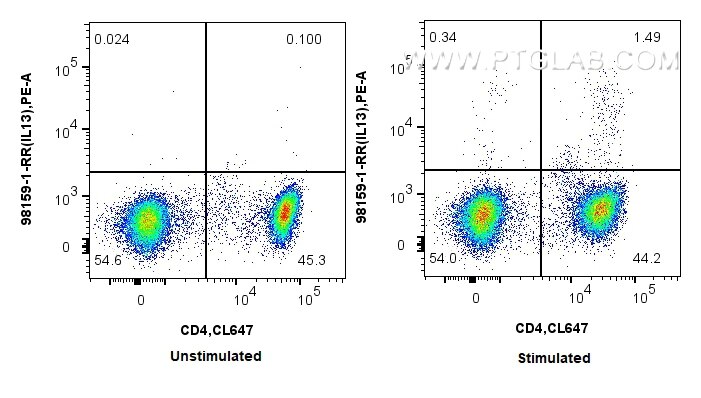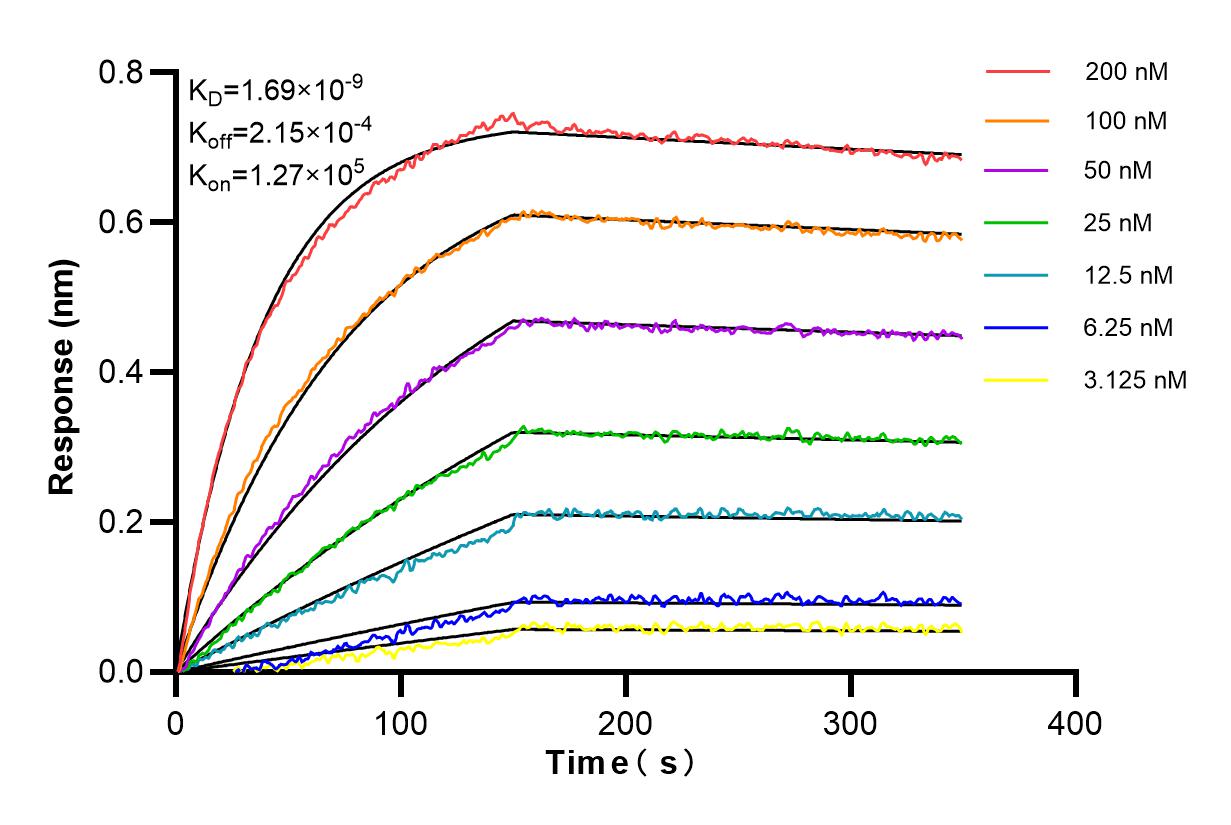Validation Data Gallery
Tested Applications
| Positive FC (Intra) detected in | PMA, Ionomycin and Brefeldin A treated human PBMCs |
Recommended dilution
| Application | Dilution |
|---|---|
| This reagent has been tested for flow cytometric analysis. It is recommended that this reagent should be titrated in each testing system to obtain optimal results. | |
| Sample-dependent, Check data in validation data gallery. | |
Product Information
98159-1-RR targets IL-13 in FC (Intra) applications and shows reactivity with human samples.
| Tested Reactivity | human |
| Host / Isotype | Rabbit / IgG |
| Class | Recombinant |
| Type | Antibody |
| Immunogen | Fusion Protein 相同性解析による交差性が予測される生物種 |
| Full Name | interleukin 13 |
| GenBank accession number | AAK53823 |
| Gene Symbol | IL-13 |
| Gene ID (NCBI) | 3596 |
| RRID | AB_3672302 |
| Conjugate | Unconjugated |
| Form | Liquid |
| Purification Method | Protein A purfication |
| UNIPROT ID | P35225 |
| Storage Buffer | PBS with 0.09% sodium azide , pH 7.3 |
| Storage Conditions | Store at 2 - 8°C. Stable for one year after shipment. |
Background Information
Interleukin 13 (IL-13) is an immunoregulatory cytokine produced primarily by activated Th2 cells. This cytokine is involved in several stages of B-cell maturation and differentiation. IL-13 up-regulates CD23 and MHC class II expression, and promotes IgE isotype switching of B cells. IL-13 inhibits the production of a series of cytokines like IL-1, IL-6, TNF-alpha, and IL-8 by activated human monocytes. IL-13 induces IFN-gamma production by NK cells. IL-13 is thought to be important cytokine in the pathogenesis of asthma, and more recently has been shown to play a pivotal role in a number of fibrotic diseases including hepatic and pulmonary fibrosis, and nodular sclerosing Hodgkin's disease.
Protocols
| Product Specific Protocols | |
|---|---|
| FC protocol for IL-13 antibody 98159-1-RR | Download protocol |
| Standard Protocols | |
|---|---|
| Click here to view our Standard Protocols |

